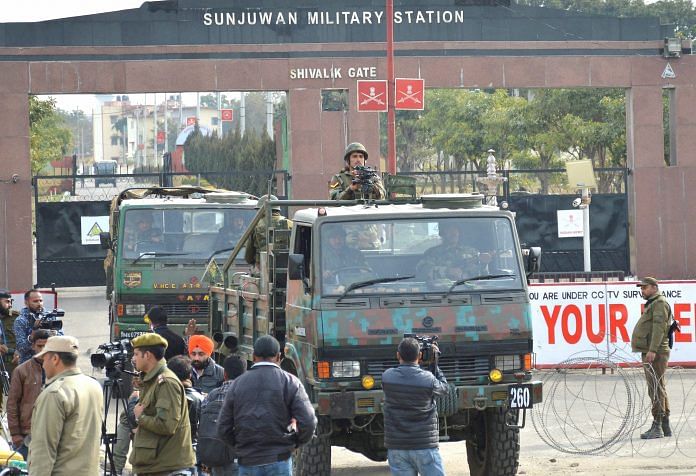Plans have been submitted for improving garrison security. Committee gave its report in 2016, but nothing has moved. This is where the real lethargy exists.
In the early hours of 10 February, terrorists sneaked into the Sunjuwan garrison at Jammu and entered the area where more than 150 families were residing. This is the worst nightmare for a commander. In the Army, wives understand the risks their husbands are taking, but there is a very deliberate organisational attempt to keep families away from the direct horror of violence. As I pen down this piece, five soldiers and one relative have been martyred, and wives, sons and daughters are lying injured in the military hospital.
Reporters asked the usual question: “Has the Army not learned any lessons from past attacks on the garrisons?” As an Army Commander in Jammu and Kashmir at a time when many of our garrisons were breached, this is not an easy question to answer. People doubt our preparedness levels and ask how we can protect the country if we can’t even protect our own bases.
A Court of Inquiry will be ordered to find out the lapses and pinpoint responsibility. The National Intelligence Agency may be called in for a parallel investigation, as has happened in the past at Uri, Handwara and Nagrota. If there was a lapse, army officials responsible for security will be suitably dealt with. This was done at Uri and Nagrota.
But is it fair to pin all the blame of such incidents on officers and men manning the garrison? After the Nagrota attack in 2016, then-defence minister Manohar Parrikar had said: “I think we can definitely improve on it (security). Probably, over a period of time, some sort of lethargy has set in.”
This reflects a poor understanding of how our soldiers are operating at the limits of human endurance.
One of the biggest challenges of a Commanding Officer in Jammu and Kashmir is to try and find ways for his soldier to get a full night’s sleep, at least on every alternate day. In many cases, this is not possible, because men have to be awake at nights manning sentry posts, patrolling or laying ambushes. There has also been extensive discussion on changing the body clock of soldiers to reverse the sleep cycle to daytime. This was a theoretical exercise because daytime activities were equally important – weapons had to be cleaned, batteries charged, rations brought up from the rear, and observation posts manned.
Life at stations like Sunjuwan, which is a peace station, is equally difficult. The infantryman, the engineer, the signaller, the driver, the clerk is carrying on with his routine duties by day, and manning sentry posts at night. This is his opportunity to spend a couple of years with his family. This is his peace tenure before he moves on to field areas in Ladakh or Arunachal Pradesh and his children relocate to a different school.
We must understand the reality and find ways to empower the soldier to do his duty better. The answer clearly lies in technology — smart fences, ground sensors, night vision cameras, and well equipped control rooms for sensitive garrisons. The need has been understood for many years, but we can’t seem to get the better of our bureaucratic procedures.
Detailed plans have been submitted for improving garrison security. The committee headed by Lt Gen. Philip Campose, instituted by the government, gave its report in 2016, but nothing has moved. This is where the real lethargy exists. And in an obvious attempt to deflect any criticism, on the evening of the Sunjuwan attack, the Ministry of Defence said that Rs 1,487.27 crore had been released for garrison security. We were informed that the progress on this case had been slow because the ministry was apparently “involved in a process of deep consultation with the three services”.
Are any deep consultations required when we are losing our soldiers? 2016 and 2017 have seen the maximum security forces casualties in recent years. Does the responsibility for this lie solely on the Army? Does the government have no role except to order inquiries into every incident? The sentry shivering at the Gurez heights along the Line of Control or the soldier bolting down his dinner with his wife at Sunjuwan before rushing off for night duty, requires support, not doubt about his abilities. This is where the government has to step in with more than mere talk.
The author retired as General Officer Commanding-in-Chief of the Indian Army’s Northern Command.



